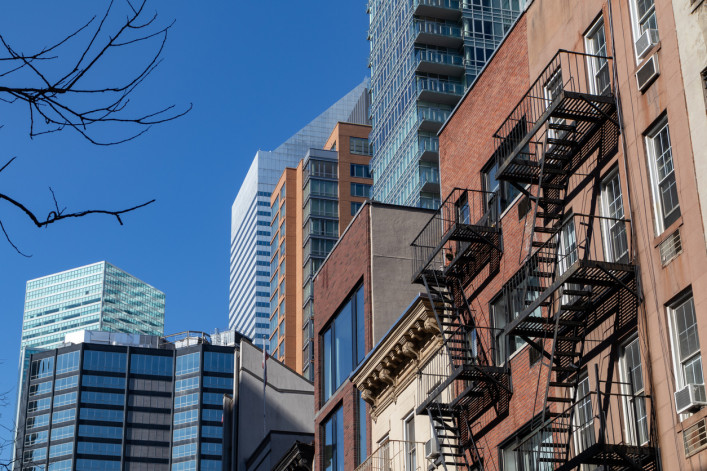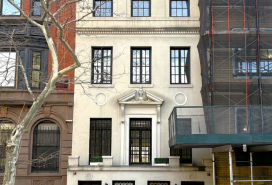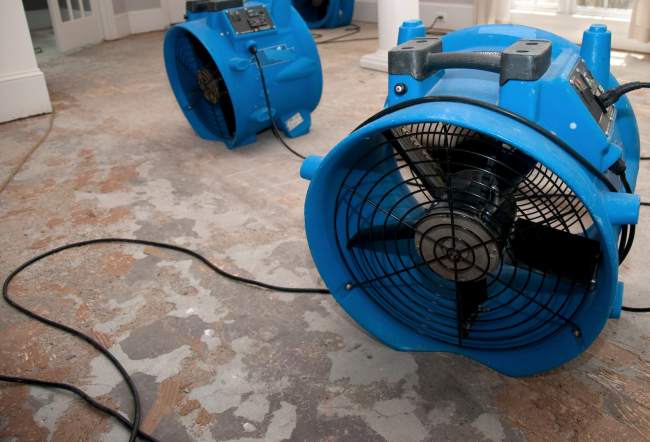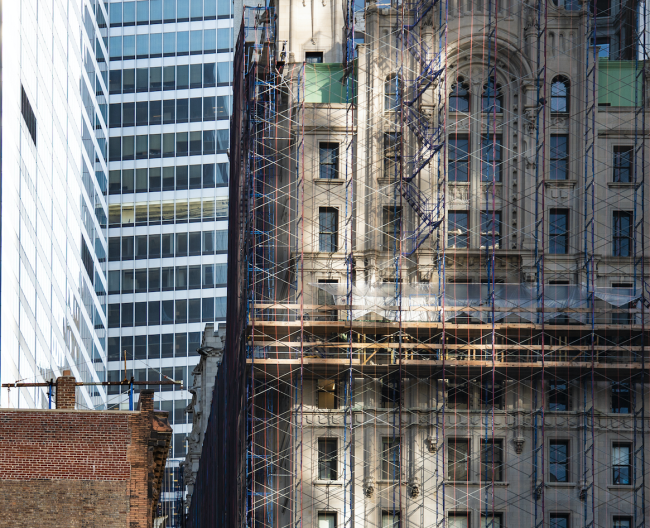Rules affecting local laws for apartment buildings have changed—how should our building prepare?

Boards should be setting aside funds, not only for the inspections, but also for repairs and efficiency upgrades.
iStock
Our board is aware there are new rules affecting local laws for apartment buildings. How should we prepare?
“The new local law requirements are significant and affect facades, indoor allergens, gas lines, and a building’s energy efficiency among other health and safety issues. A savvy board will address these issues now and not wait until it’s an emergency,” says Steve Wagner, a partner at Wagner, Berkow, & Brandt, with decades of experience representing co-op and condo boards.
The city is increasingly taking a proactive role to ensure the safety of residents in residential buildings by tightening safety requirements, increasing fines for non-compliance, and establishing new rules for buildings. As a board, you need to communicate with your managing agent to find out the timetable for required energy, gas, mold, and facade inspections.
“The costs and penalties for not complying are steep and if you are doing this type of work on an emergency basis it could seriously damage your building’s financial health,” Wagner says.
If you don’t have a managing agent to help you prepare for the added requirements, you need to find the right professionals to support you. You will also want to budget for the work, not just for the inspections but for any repairs and remediation that might be needed as a result of the additional scrutiny.
Local Law 11: Facade work
Facade inspections of a residential building are nothing new and have been in place since 1980 but the inspections are now more thorough and have stricter requirements than in the past. The Facade Inspection Safety Program (FISP) is designed to prevent pedestrians from getting hurt when facades erode and become a danger to people walking nearby.
“Facade inspection rules have recently been expanded and the work is more hands-on. Not only do you need to do scaffolding drops every 60 feet but you may be required to conduct probes to confirm the integrity of the building’s facade,” Wagner says.
Prewar buildings are less likely to need probes but Wagner says cavity wall construction will need additional drilling. “It’s probably the most common type of construction since the 1950s so those buildings that have cavity walls will need this additional measure to make sure the structure itself is in good shape.”
Wagner says it is important to understand that the inspections themselves will likely be more expensive because they require more scrutiny and as a result will probably reveal more problems. “Boards ought to have money budgeted not only for the inspections but also for the repairs that will need to be done,” he says.
Local Law 152: Gas line inspections:
Gas leaks in any building can be extremely dangerous and Local Law 152 requires gas pipes to be periodically inspected by a licensed master plumber or under a master plumber’s direction. These checks need to be carried out every four years depending on the community district in which you live.
Ideally, your building’s capital plan already includes a detailed review of your building’s systems along with a timeline for planned upgrades. If not, Wagner says boards should consider hiring a plumber to determine whether your building’s systems are in compliance.
“This could be a major item not just to replace the gas line but also if repairs need to be made or lines need to be replaced,” Wagner says.
One important consideration for boards is that gas pipes go through the kitchens of residents and in some cases those kitchens have been significantly upgraded so it could be complicated to get access to pipes. “Co-ops and condos need to check their bylaws and alteration agreements, and in the case of co-ops their proprietary leases, and speak with counsel to determine the rights of the apartment owner and the board concerning access and restoration after the work is completed,” Wagner says.
For example, an apartment owner is not going to want their kitchen to become a construction site while portions of piping are replaced or reinstalled. In some cases, shareholders and owners have upgraded their apartments with wall-to-ceiling built-ins so questions will then be raised about access to the pipes within the walls as well as repair obligations.
“The general rule is the apartment owner must provide access and the repair obligations of the co-op or condo are limited after the access is provided,” Wagner says. Boards may want to show more flexibility on this issue, not least because if the conditions are serious they could end up with the gas being shut off. “That is an expensive and time consuming proposition,” Wagner says.
Local Laws 33 and 97: Energy compliance
Benchmarking—where your building gets an energy efficiency grade—has been in place for a decade but the requirements have been expanded and you must now display the building’s EnergyStar score publicly. Under Local Law 33 your score is converted to a letter grade, and although you aren’t currently penalized for the grade your building gets, you do face a fine of more than $1,000 if you don’t have the grade posted and visible, say in the lobby.
It is a board’s responsibility to use an approved energy auditor to carry out the analysis of the building.
Under Local Law 97, the board must also work to reduce the greenhouse emissions of a building. This involves preparing and filing a report on your benchmarking progress. These rules strengthen the obligation on boards to make sure a building’s energy systems are correctly installed and working at optimum efficiency. “This is called retro-commissioning and might involve adjusting valves, repairing and cleaning systems, resetting programs, or changing operational practices,” Wagner says.
A board will want to be working to reduce their building’s carbon footprint, but also avoid the fines that will be issued if they don’t file the appropriate reports. “This is not something that can be left to the last minute—boards need to be working well ahead of time to complete their obligations with regard to energy efficiency,” Wagner says. That could involve installing more energy efficient windows, switching to high efficiency HVAC systems, or communicating with shareholders and owners about upgrading to energy efficient lighting within their apartments.
Buildings will start facing penalties for non-compliance after 2024 so it’s important to start taking steps now to avoid these fines.
Local Law 55: Allergens
Mold is now viewed as a dangerous allergen and remediation as well as penalties for not addressing it are spelled out by Local Law 55. In a co-op, the presence of mold is a violation of the warranty of habitability and a board would be well advised to remediate it quickly and deal with any liabilities later, Wagner says.
In a condo, similar precautions need to be taken to protect residents when mold is identified and Wagner makes the point that the work is not cheap. “If you have leaks and mold is growing in various locations, it could easily cost $10,000 or $20,000 to remediate,” Wagner says.
Timetables, logistics, and support
It’s possible your building may have to increase maintenance or common charges due to capital repairs. Wagner says staying ahead of the regulations involves a combination of knowing the timetable for inspections and knowing who to reach out to in order to complete the work.
“It’s also important to know what resources are available from ConEd or New York State Energy Research and Development Authority (NYSERDA) and possibly the city in terms of getting the support you need,” Wagner says.
New York City real estate attorney Steven Wagner is a founding partner of Wagner, Berkow, & Brandt, with more than 30 years of experience representing co-ops, condos, as well as individual owners and shareholders. To submit a question for this column, click here. To arrange a free 15-minute telephone consultation, send Steve an email or call 646-780-7272.
You Might Also Like


























